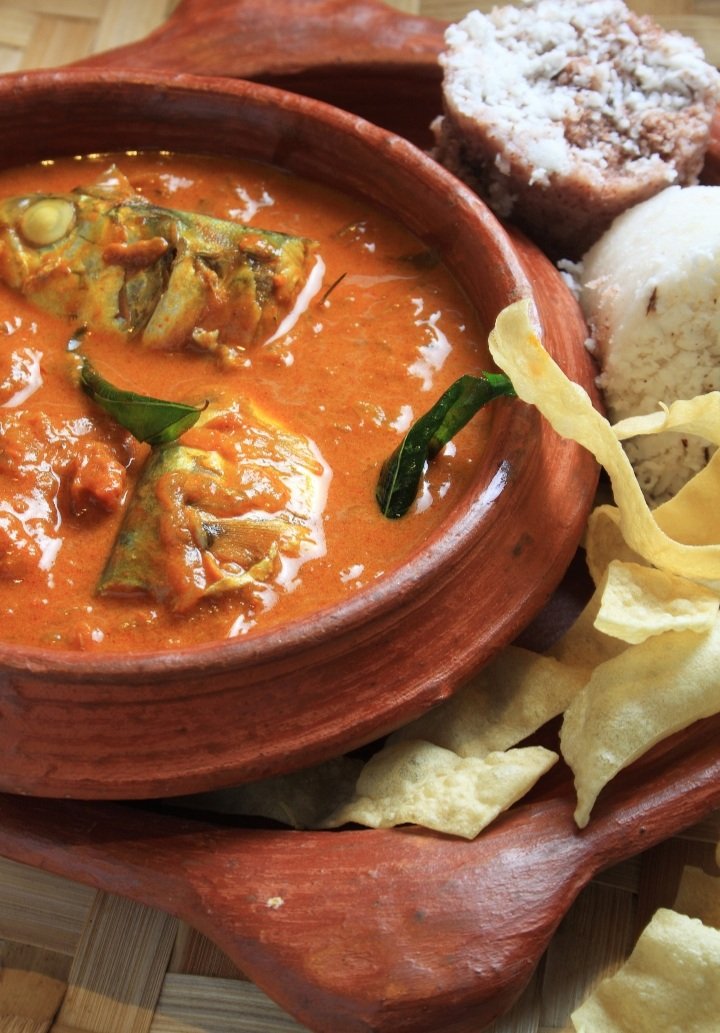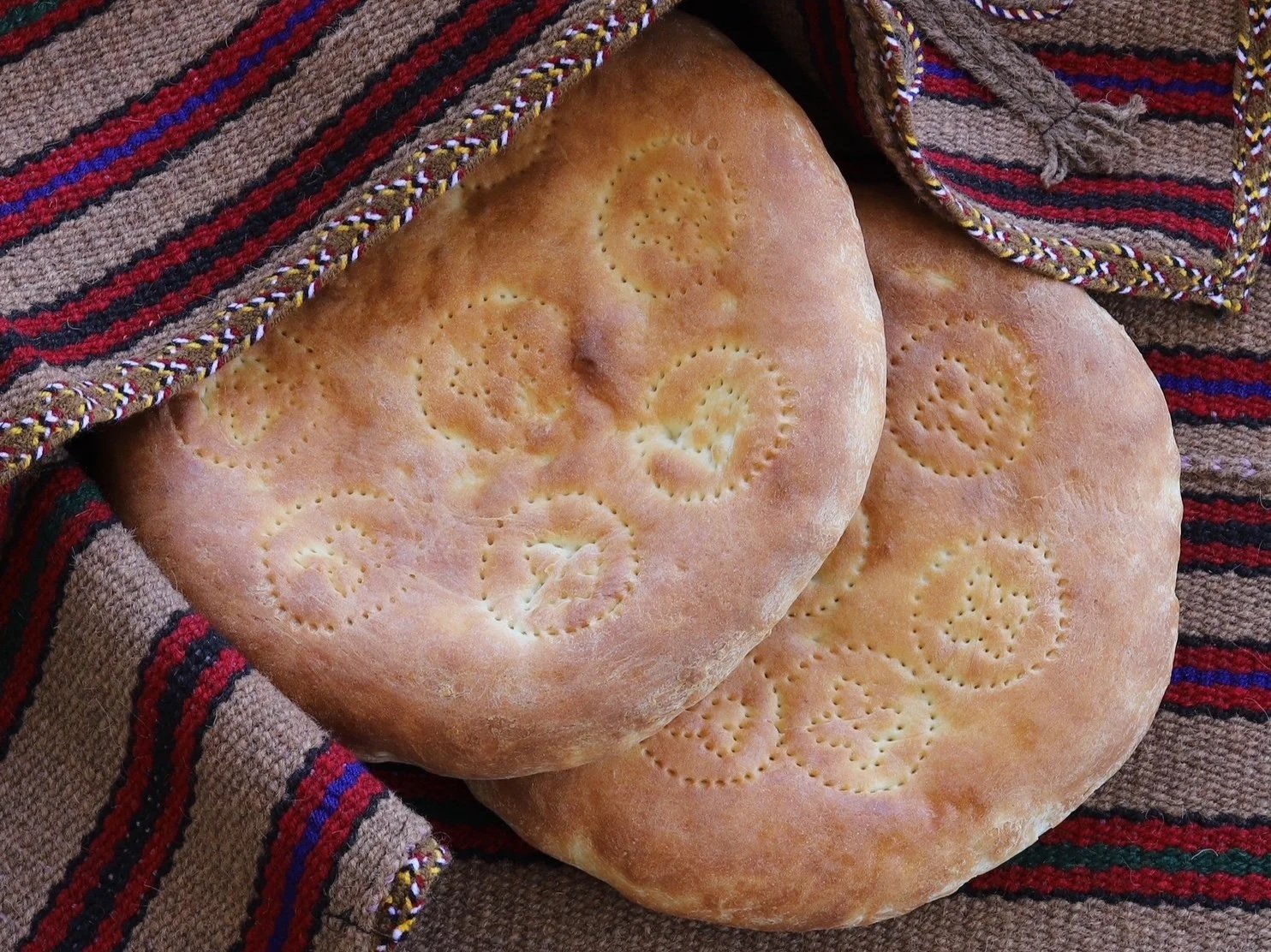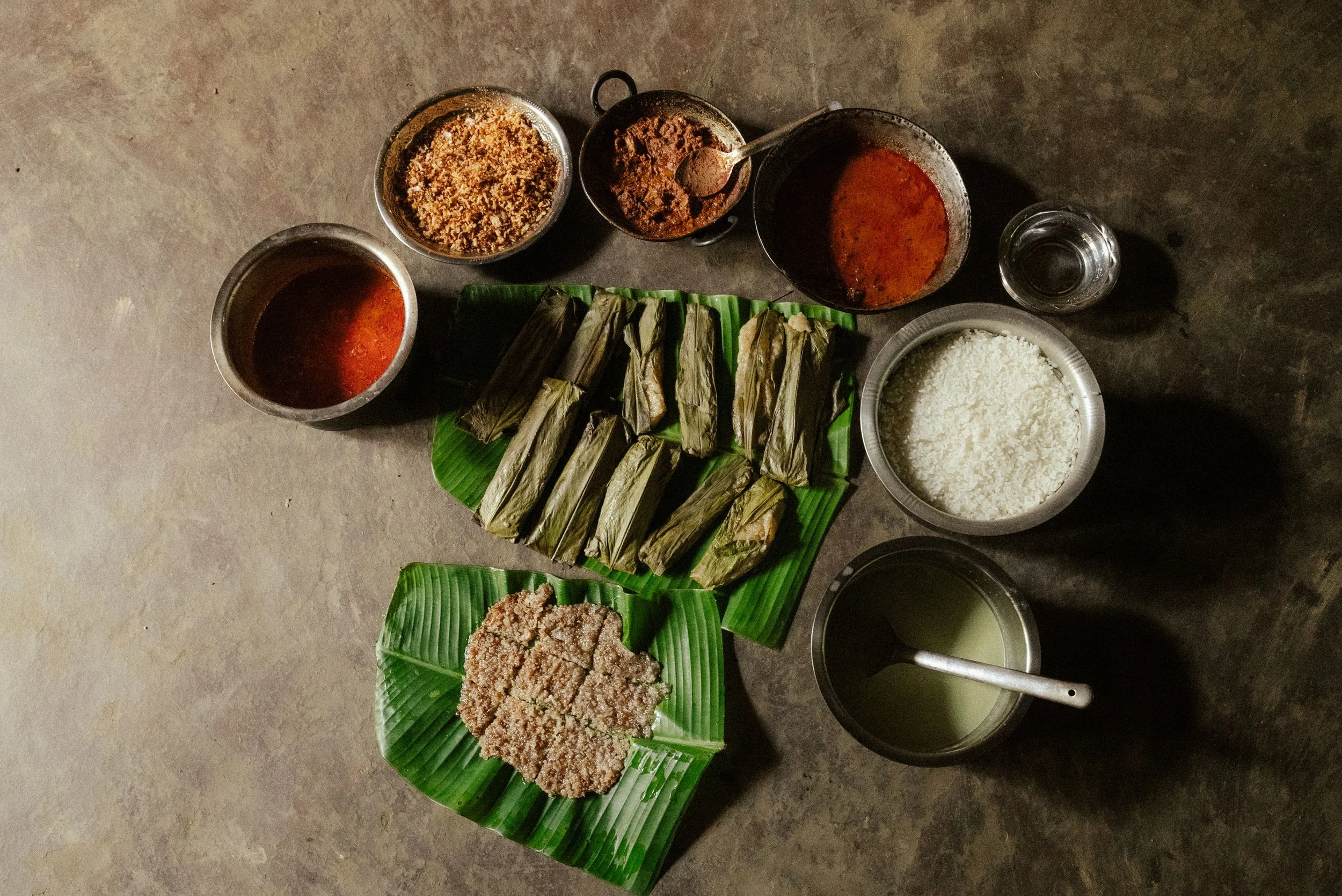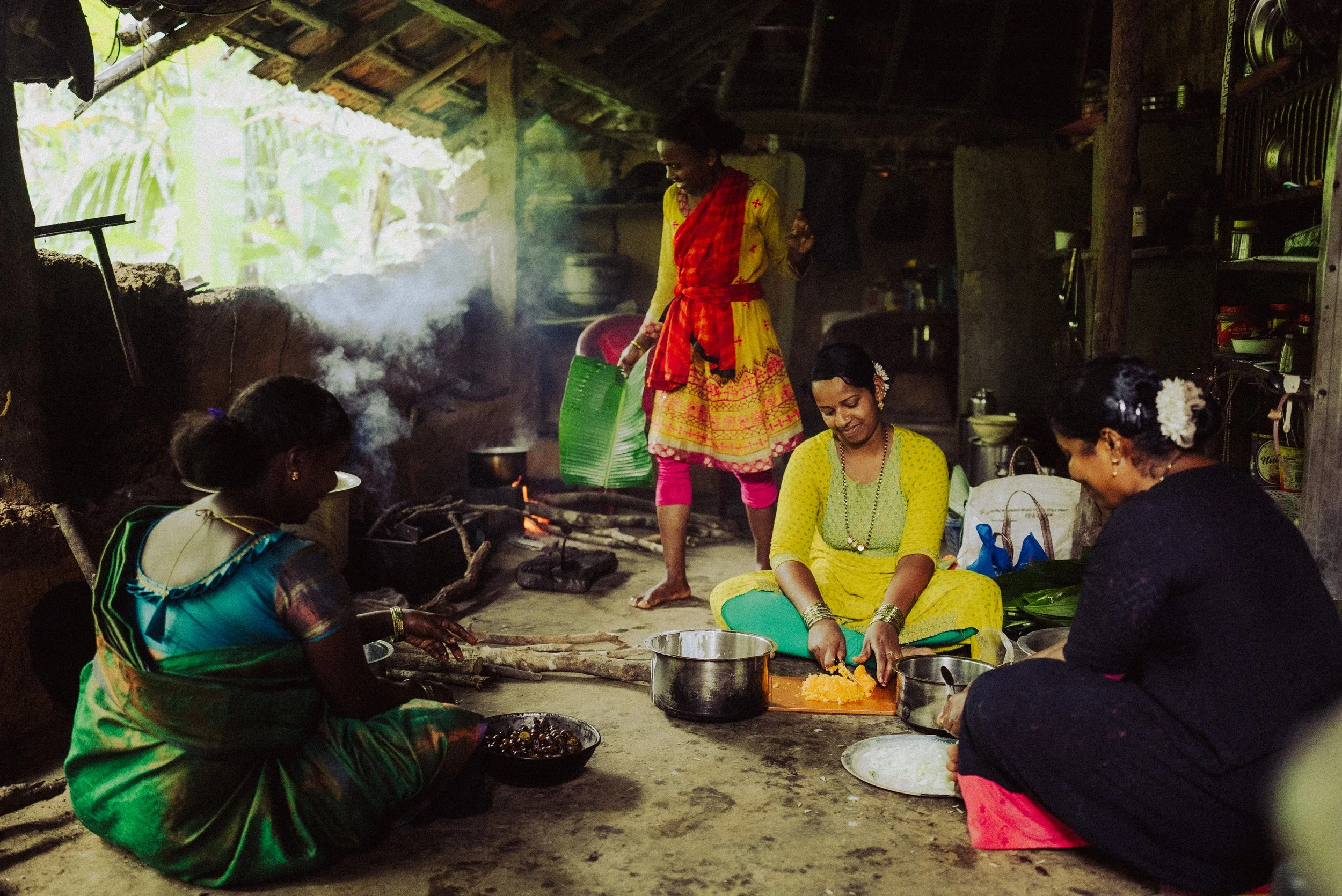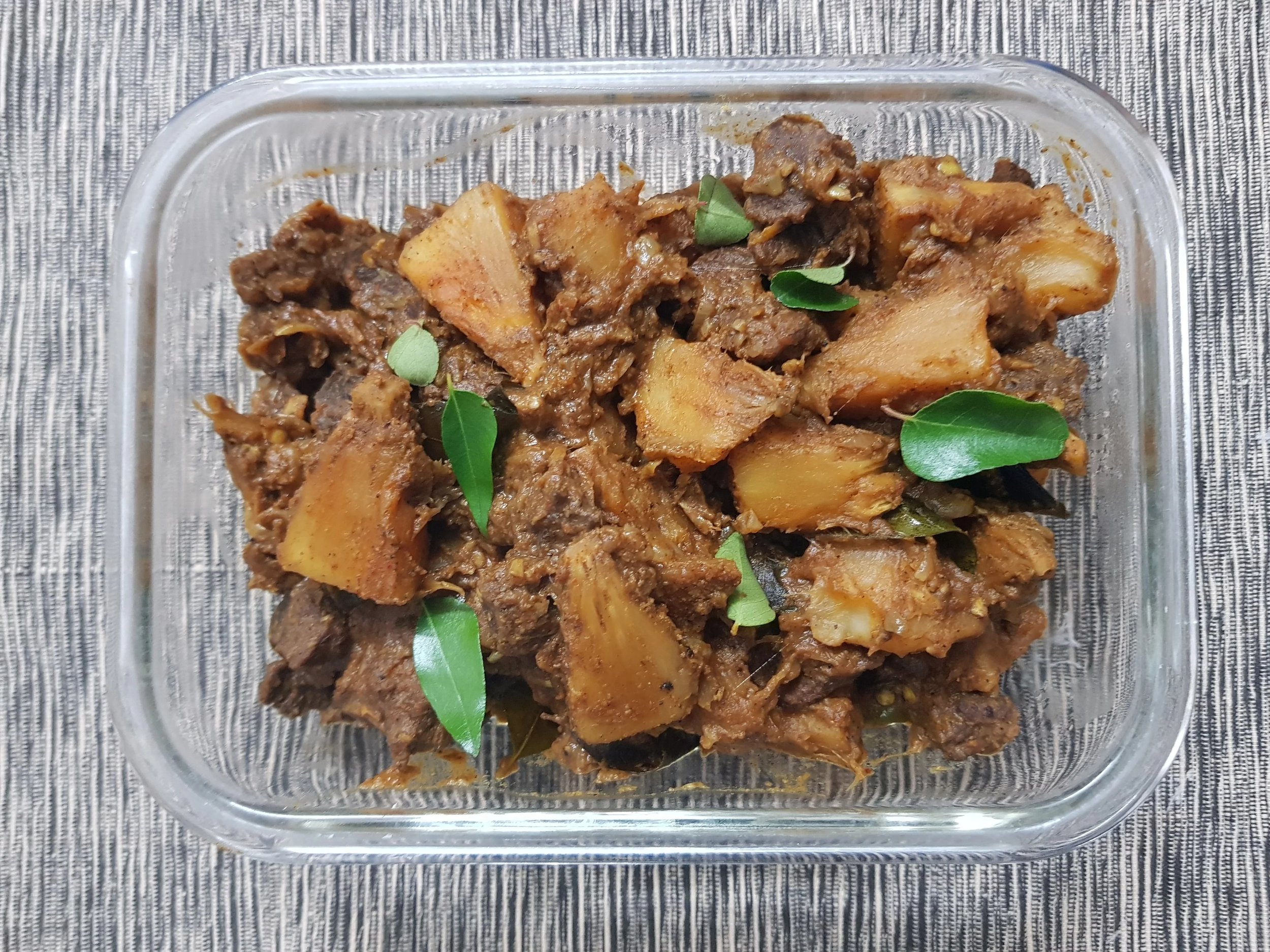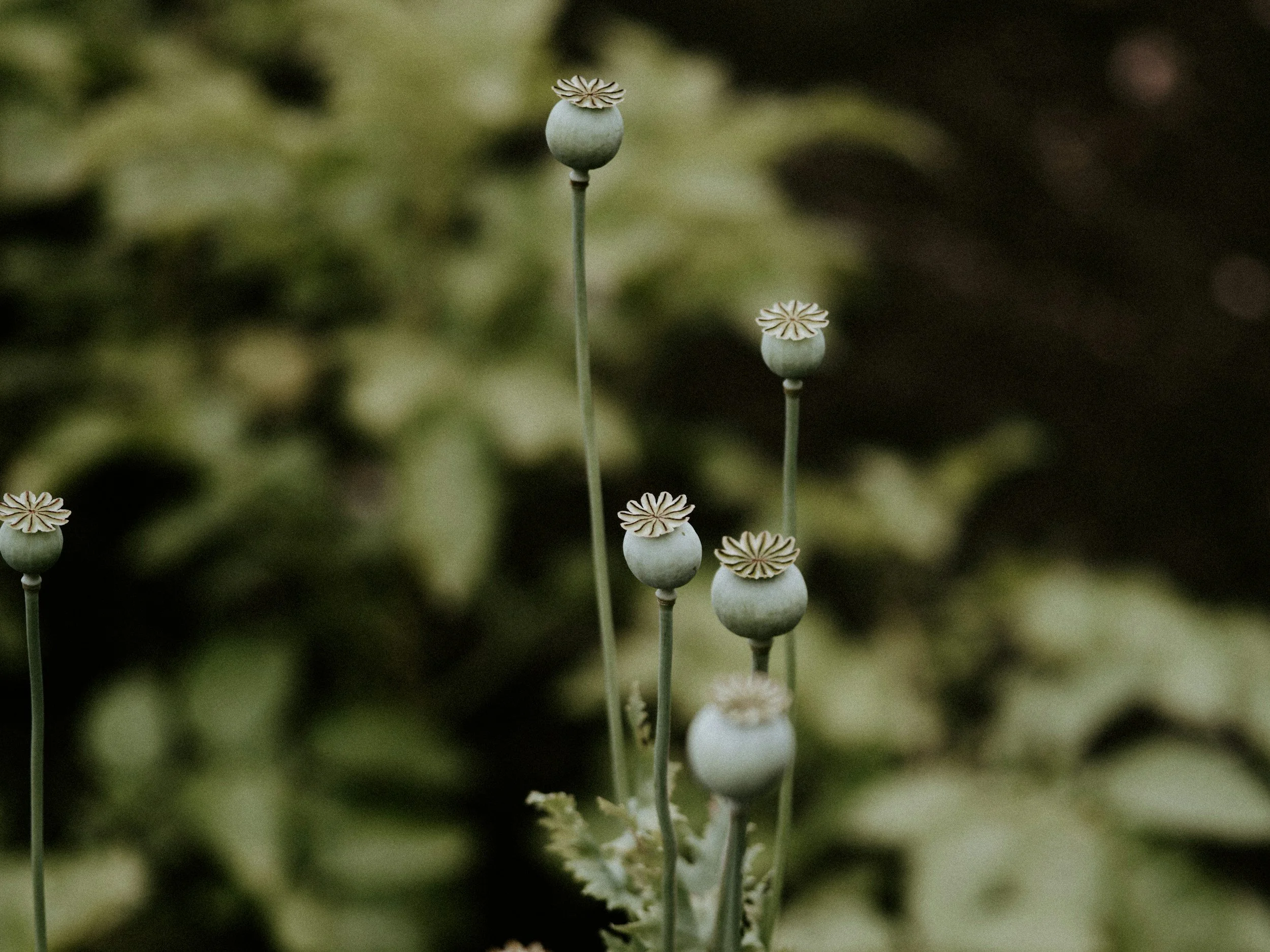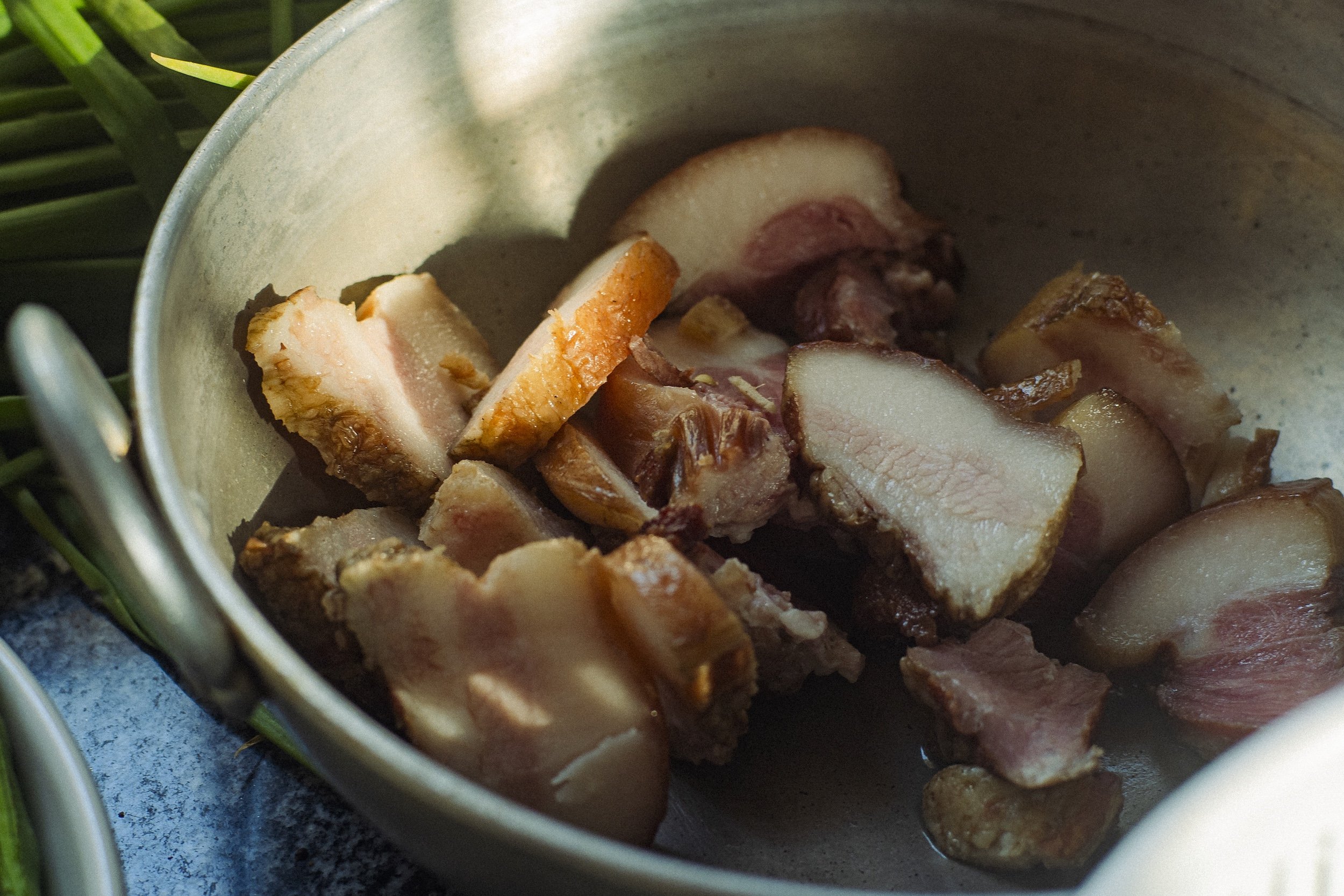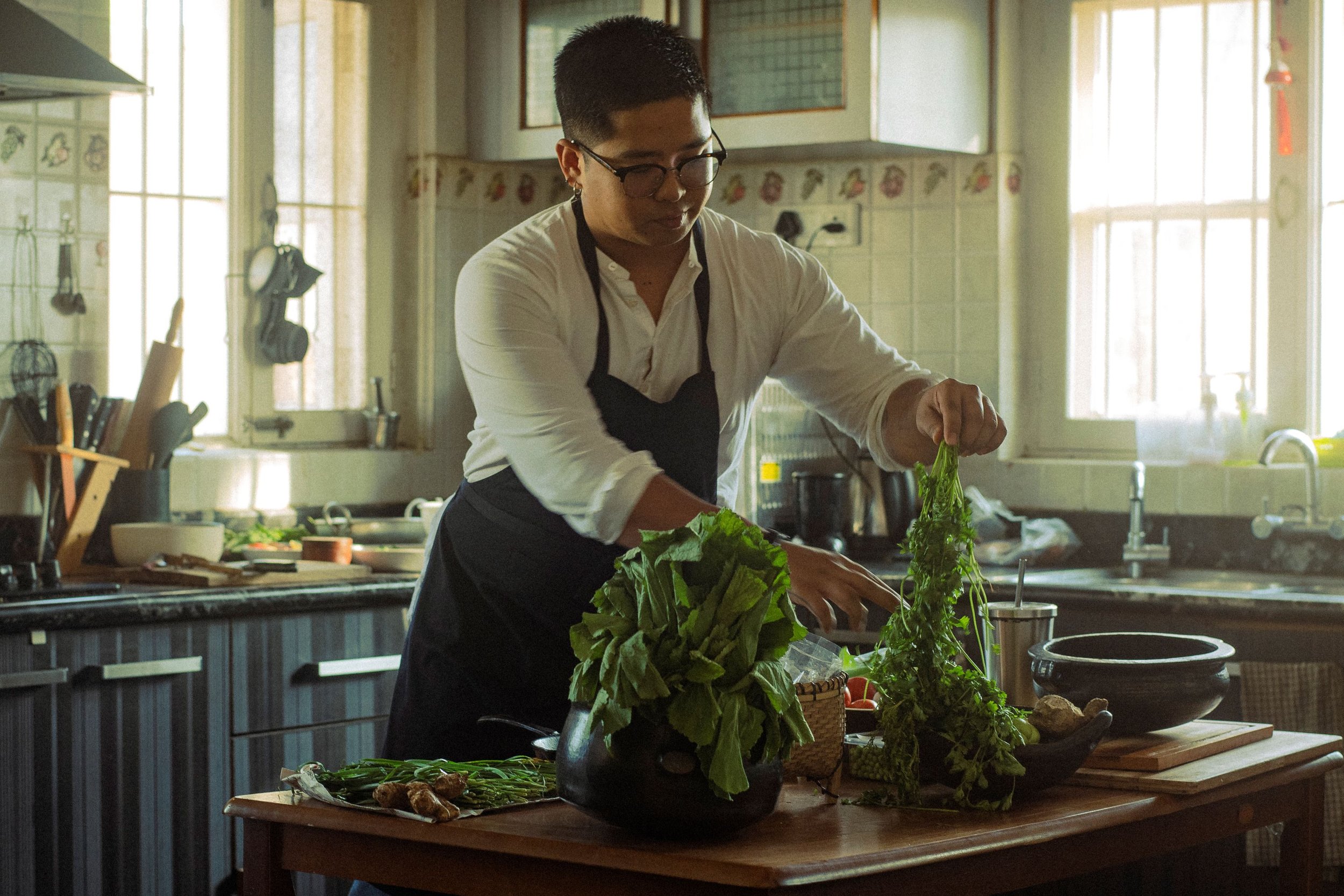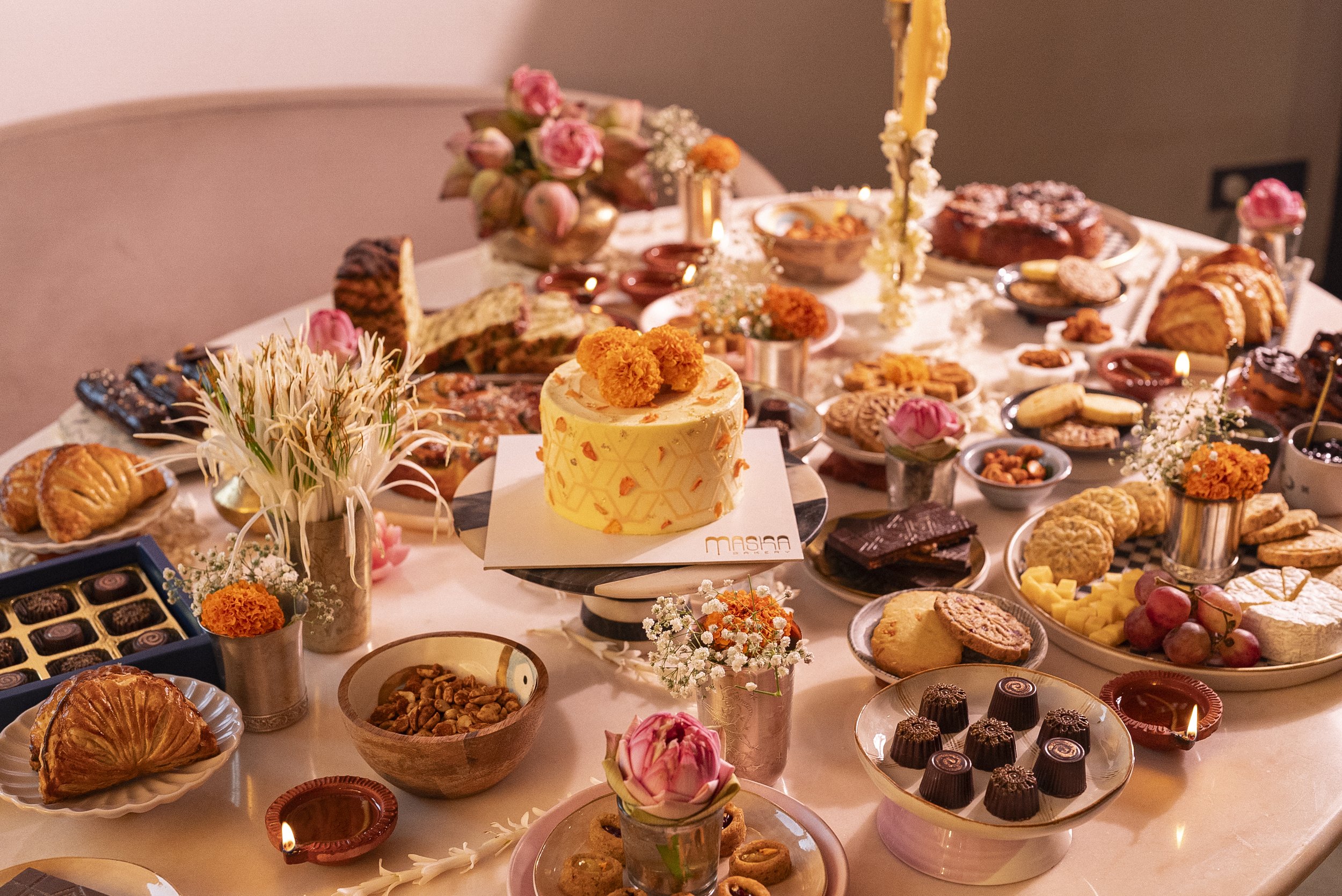Touchings: The Delicious World of Kerala Bar Snacks

Kal shaap food is an important part of Kerala cuisine. Nitin Sumitran writes about some of the classics.
Indians love chakna so much that we sometimes choose the bar based on the quality of the starter served there. A few years back, these snacks used to be complimentary but with the current scenario, nothing is free unless you are a regular. At my favourite watering hole, the steward slides the snack of the day towards me, complimentary, because he knows that he gets a decent tip at the end of the session.
The bar snacks in Kerala, lovingly called touchings, could range from simple fare like peanuts, boiled eggs, pickles, to fried prawns, beef and pork ularthiyathu. Snacks here are always spicy, mostly because the heat cuts through the sweetness of the kal or toddy (a drink made of the sap of the coconut palm tree).
A State-Wide Celebration of Bar Snacks
On last count, Kerala which is 38,000 kilometres long, has over 3500 toddy shops, that are mostly all-male bastions. But lately, many have expanded to include separate family rooms where the entire family gets together for a drink and some delicious touchings. In the days gone by, these bars would generally only serve boiled eggs, mixture (Kerala style farsan), kappa and mathi curry, but with Kerala cuisine getting the much needed recognition and respect, menus now runs into a few pages and include beef and pork roast, fried sardines, duck curry, amongst others. The more popular shaaps even have a live counter where fish is continuously fried on a huge tava.
Among the host of touchings, the most popular in the kal shaaps and bars is kappa meen mulagithathu in which kappa or tapioca is peeled, roughly chopped into cubes, boiled with some turmeric and salt, given a tempering of mustard seeds, curry leaves, and broken red chillies, and served with a fiery sardine curry. The kappa is bland and devoid of much flavour, but paired with the spicy curry, it is an explosion of flavour in your mouth and a perfect match to the slightly sweetish kal /toddy. Though any fish can be used in this preparation, sardines are preferred due to their delicious flavour and relative cost-effectiveness. A bottle of toddy, some kappa with meen curry, and life is good.
Another all-time favourite is karimeen pollichathu. Karimeen or pearlspot is a fish that is native to Kerala. This fish is fried and wrapped in a banana leaf, coated with masala and again pan-fried. The joy is in opening the leaf-wrapped fish parcel, with steam tickling your face. I, for one, found out the hard way that eating this requires a lot of patience, as this is an extremely bony fish.
If you are more of a meat-with-booze person, the ultimate touching is some beef / pork ularthiyathu (slow roasted chunks of meat with masala). There are multiple versions of this, but the one I am partial to involves boiling the meat with spices, shallots and then frying it with more spices, onions and slivers of coconut. It can be eaten as a starter or as a side to be mopped up with appam or pathiri.
Kappa with mathi curry
Fish head curry
Meat, Egg, And Every Kind of Seafood
In the south of Kerala, specifically in the Alappuzha and Kumarakom regions, duck farming is a major industry due to the presence of large swathes of backwaters. As a result, duck meat finds its way into the menus of the local kal shaaps and restaurants. Duck mappas is one of the most popular south Kerala delicacies, and is made with a mixture of local masala, and coconut milk.
A fish item that I cannot get myself to eat is the meen thala curry (fish head curry). I find that it lacks meat, and the two eyes staring back at me is quite unnerving, but the local hardcore fish enthusiasts swear by this dish and will go to great lengths to tell you that this is the tastiest part of the fish. To each his own.
My all-time favourite, however, is the kalumakai fry (mussels fry) — I could eat this 7 days a week. Kalumakai is now a lot more expensive, and not something that many can afford to consume daily with their evening drink, but given a choice I would absolutely choose this as a go-to starter. Growing up, my brother and I would call mum an hour before we reached home, and she would start frying these by the kilo. We would barely manage to park the car before pouncing on these fried beauties.
Another popular starter across Kerala is chemeen roast (prawn roast) — small fresh prawns that are given a quick 3-4 minute sauté in a spicy masala and served on a banana leaf.
Koonthal fry (squid fry) doused in a chilli sauce and shallow fried in coconut oil on a tava, and njandu roast (crab roast) are dishes I make regularly, but the flavours from the thattukada and kal shaap can never be replicated, even though I use the same ingredients.
If you in God’s own country, it would be sacrilege not to try mathi fry (sardine fry), which is Kerala’s most popular fish. A plate of this crispy fried, along with some ayla porichathu (fried mackerel) will transport you to the gates of culinary heaven.
Crab curry
Sardine and mackerel fry
Last but not least, the most popular snack for drinkers across India is the humble omelette that is always made fresh on a cast-iron tava. The only difference is that in Kerala, you can choose from a variety of eggs starting from the regular chicken eggs to duck and quail eggs. The method is the same: break eggs, add coarsely chopped onions, chillies, whip vigorously in a stainless steel tumbler, pour onto a tava, flip twice, and there you have it — the cheapest bar snack to pair with your favourite drink.
Indo-Chinese food finds its way here in the form of beef chilli fry, which may be the go to snack for the younger generations. Of course, if you are on a budget and getting high is your only goal for the day, there is the roasted peanuts, boiled eggs and the most famous of all touchings, pickle, which is always complimentary. Only thing to keep in mind when going for the communal pickle bowl — you don’t how many people have already touched this touching!
Nitin Sumitran is an ex-hospitality & corporate aviation professional based out of Mumbai. He operates a small home-kitchen in Powai, Mumbai, together with his wife Deepa, specialising in simple, home-style Kerala cuisine. They deliver across Mumbai and Thane. You can reach them on Instagram as @appamstories or directly on +919004032817.
ALSO ON GOYA JOURNAL

